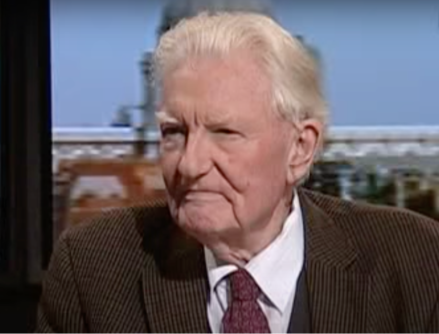The Georgetown University professor talks to Daniel P. Schmidt and Michael E. Hartmann about what identity politics has done to charity and philanthropy.
“Identity politics, in my view, is a pretty profound distortion of Christianity,” Georgetown University professor Joshua Mitchell told us late last month. Mitchell studies the relationship between Western political theory and theology. His newest book, the profound American Awakening: Identity Politics and Other Afflictions of Our Time, includes an analysis of our understanding of charity in this context.
“Christianity makes this remarkable claim—namely, that the sins of the world are taken away by the divine scapegoat, if the Christ is the one who takes upon himself the sins of the world,” according to Mitchell. “What identity politics does is it retains the idea that there are sins, and in fact the original sin, and retains the idea of the scapegoat. But instead of finding a divine resolution to the problem, it finds an immanent one.”
This immanence essentially seeks to transform America by turning politics into a religious venue of sacrificial offering, Mitchell explains in American Awakening. Notions of charity and mercy, too, are thus necessarily altered—to quite ill effect.
A world without gifts
Mitchell was kind enough to explore this concerning shift, and its implications for philanthropy, with us. His previous books include Not By Reason Alone: Religion, History, and Identity in Early Modern Thought, The Fragility of Freedom: Tocqueville on Religion, Democracy, and the American Future, Plato’s Fable: On the Mortal Condition in Shadowy Times, and Tocqueville in Arabia: Dilemmas in a Democratic Age.
He is also a fellow of the Claremont Institute’s Center for the American Way of Life, an active participant in the Woodson Center’s 1776 Unites effort, and a signatory of the Liberty and Justice for All statement co-sponsored by 1776 Unites and organized by the Real Clear Foundation (as are The Giving Review co-editors).
The video below continues our conversation with Mitchell, as he describes identity politics’ current deity-replacing scapegoat. Almost 20 minutes’ long, it is the first of two parts; the second is here.
“Mercy is at the heart of Christianity. But what identity politics does is it denies mercy, denies forgiveness,” Mitchell says. “There’s no room whatsoever for charity and for forgiveness. It’s a world without gifts.
“Social justice is a political project,” he notes.
It’s a project of establishing who owes who what. This is the essence of identity politics. The purpose is not to accomplish things. The purpose is to call out groups and establish your debt and innocence points. To move philanthropy to social justice is to completely misunderstand the relationship between the world of payment and the world of gifts.
In the second part of the conversation, we discuss philanthropy as a necessary supplement to justice, the nature of our commitment to liberty, and trusting the “deplorable” and the “irredeemable” to govern themselves.






